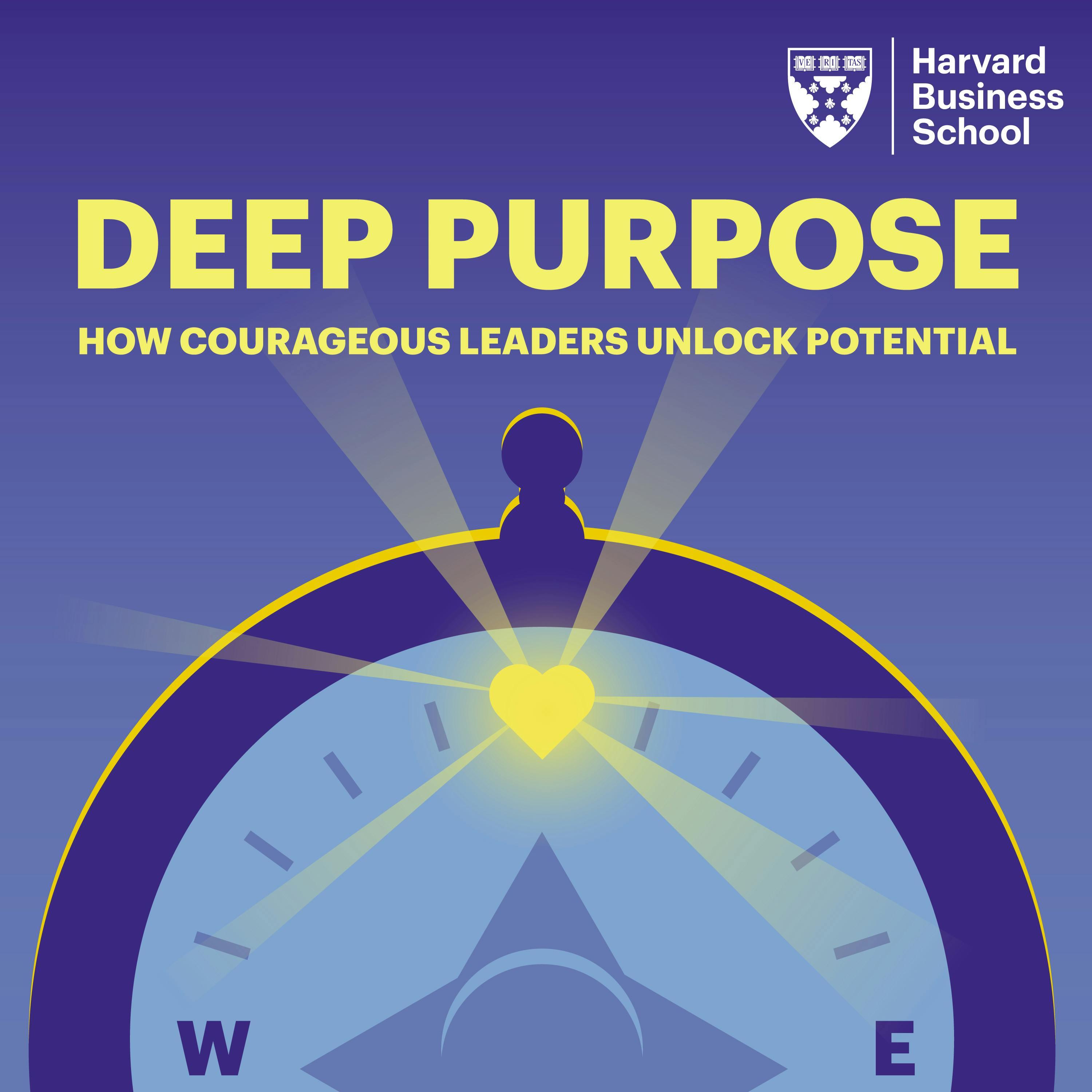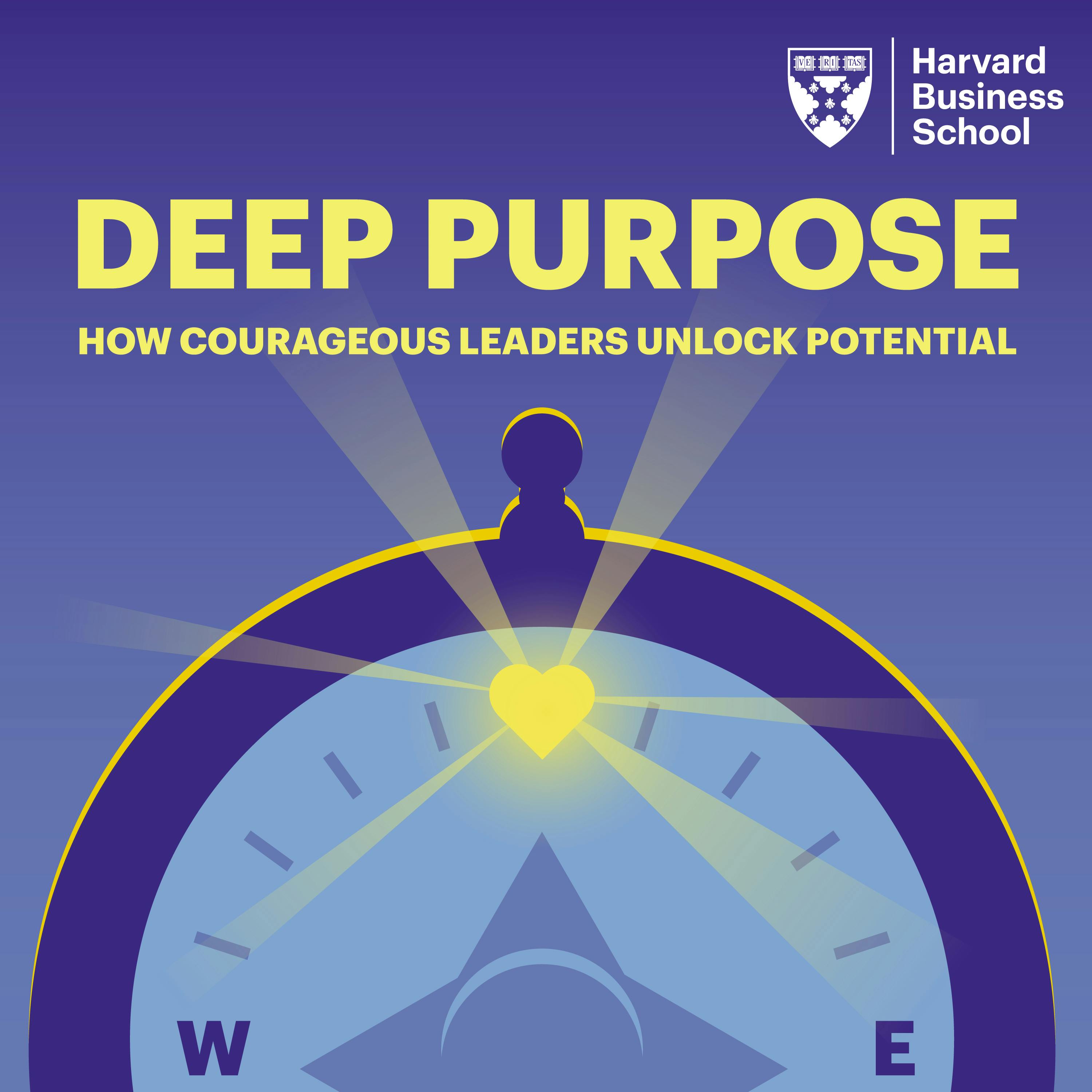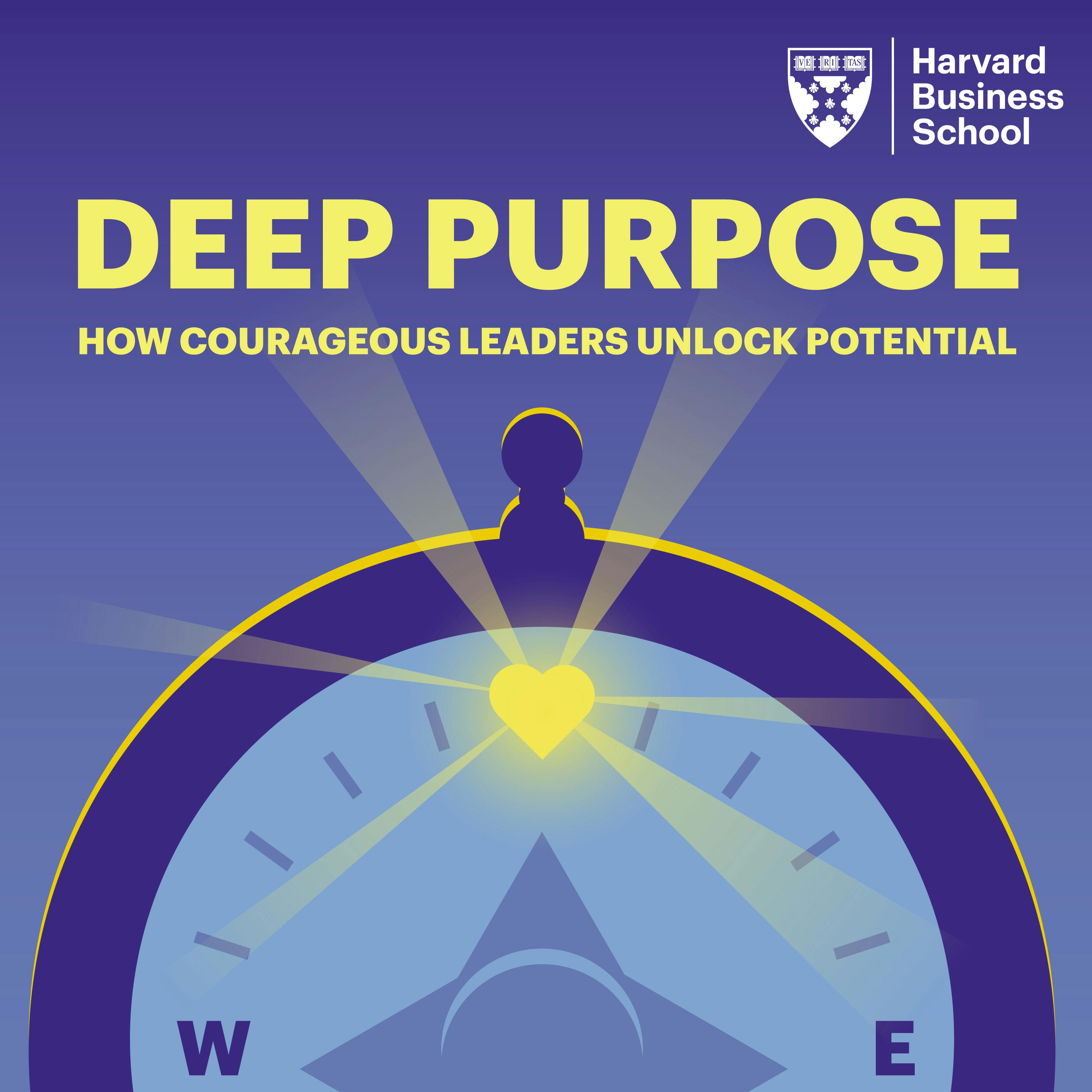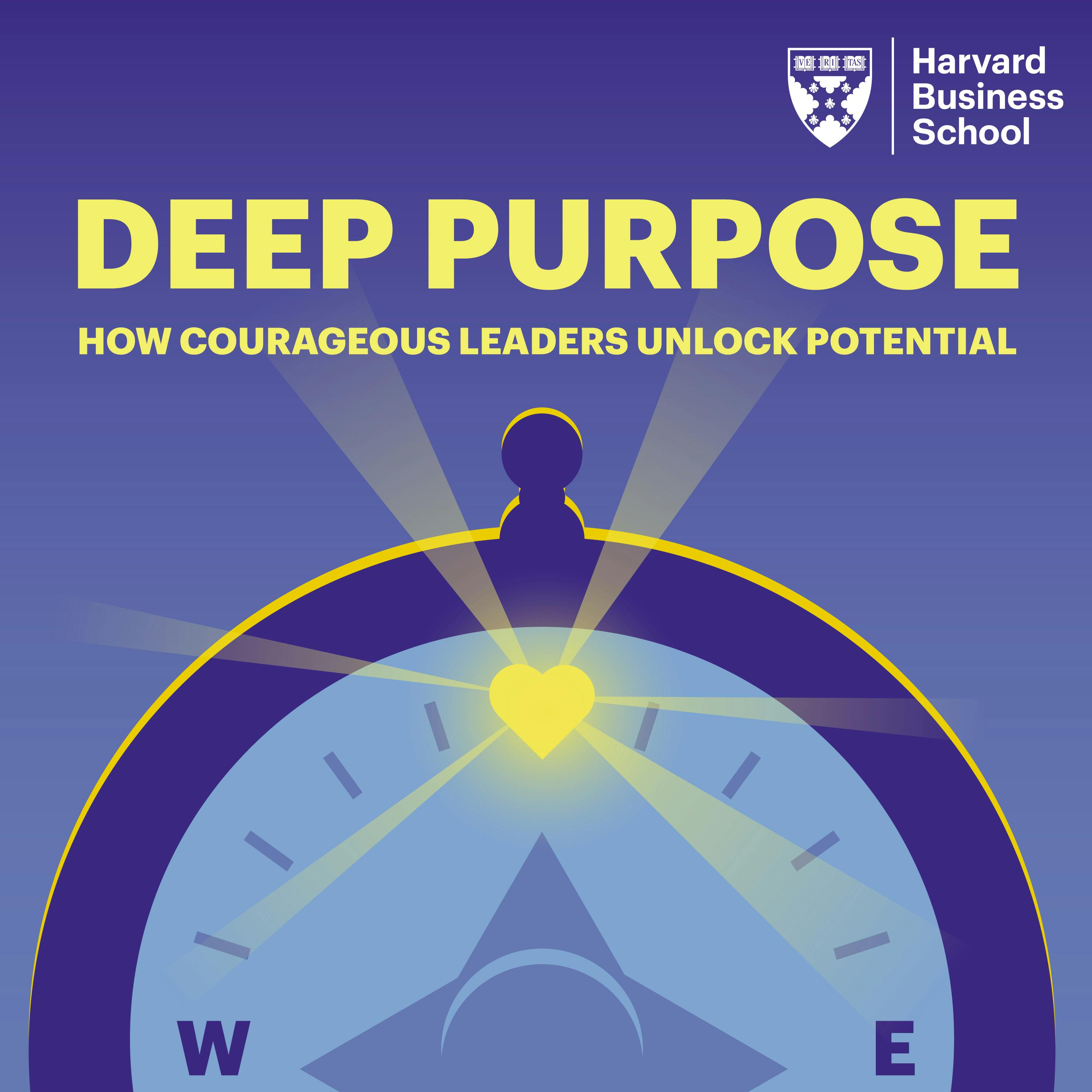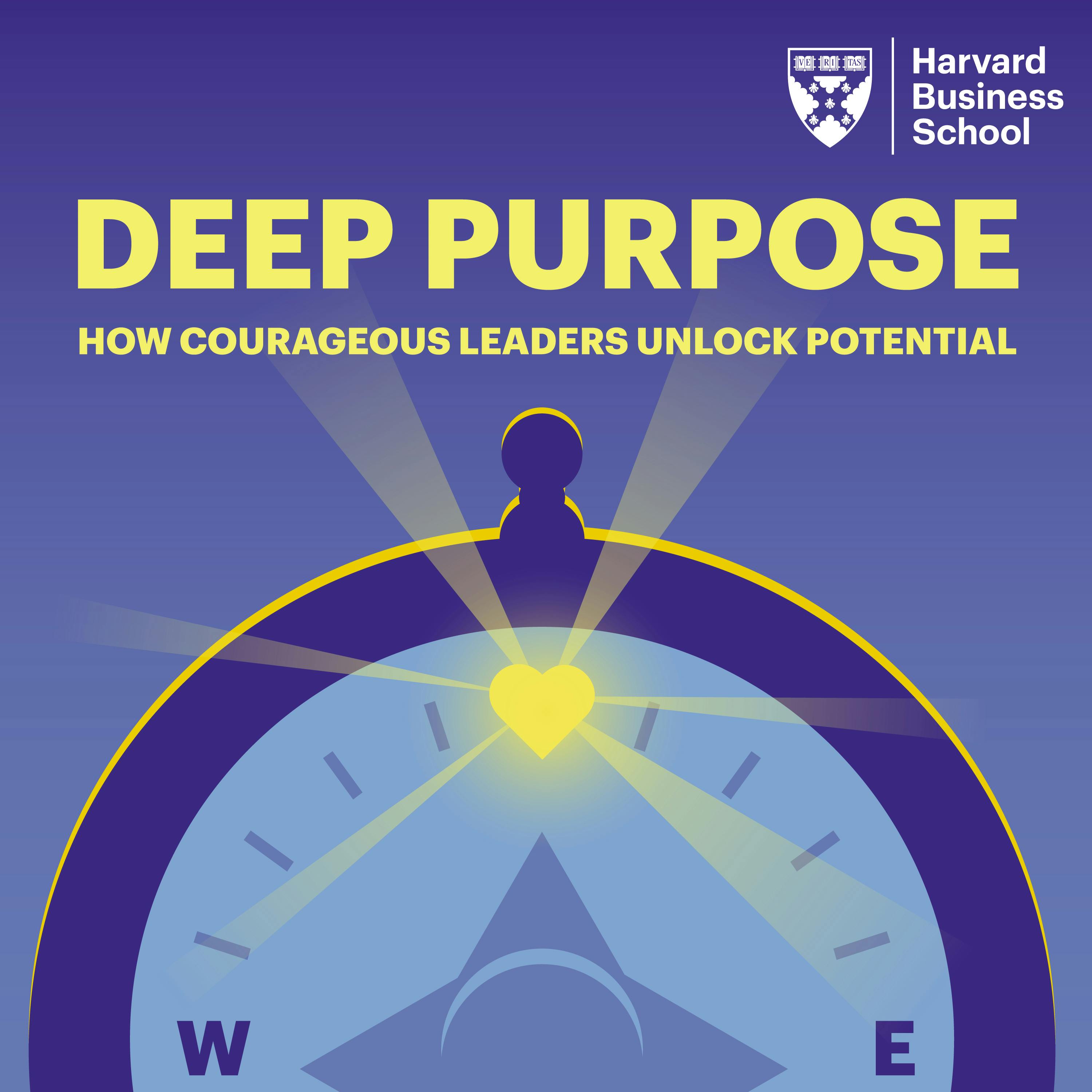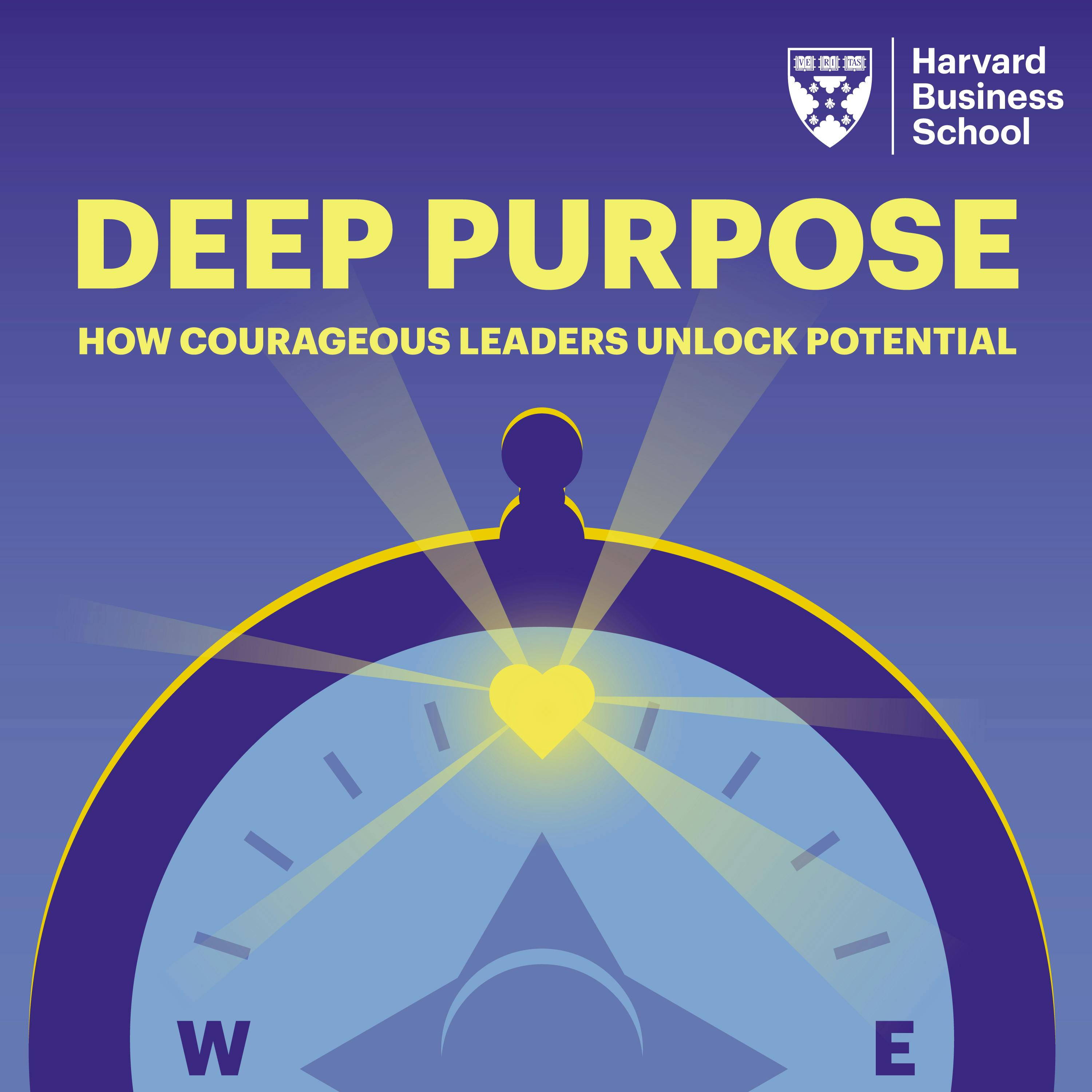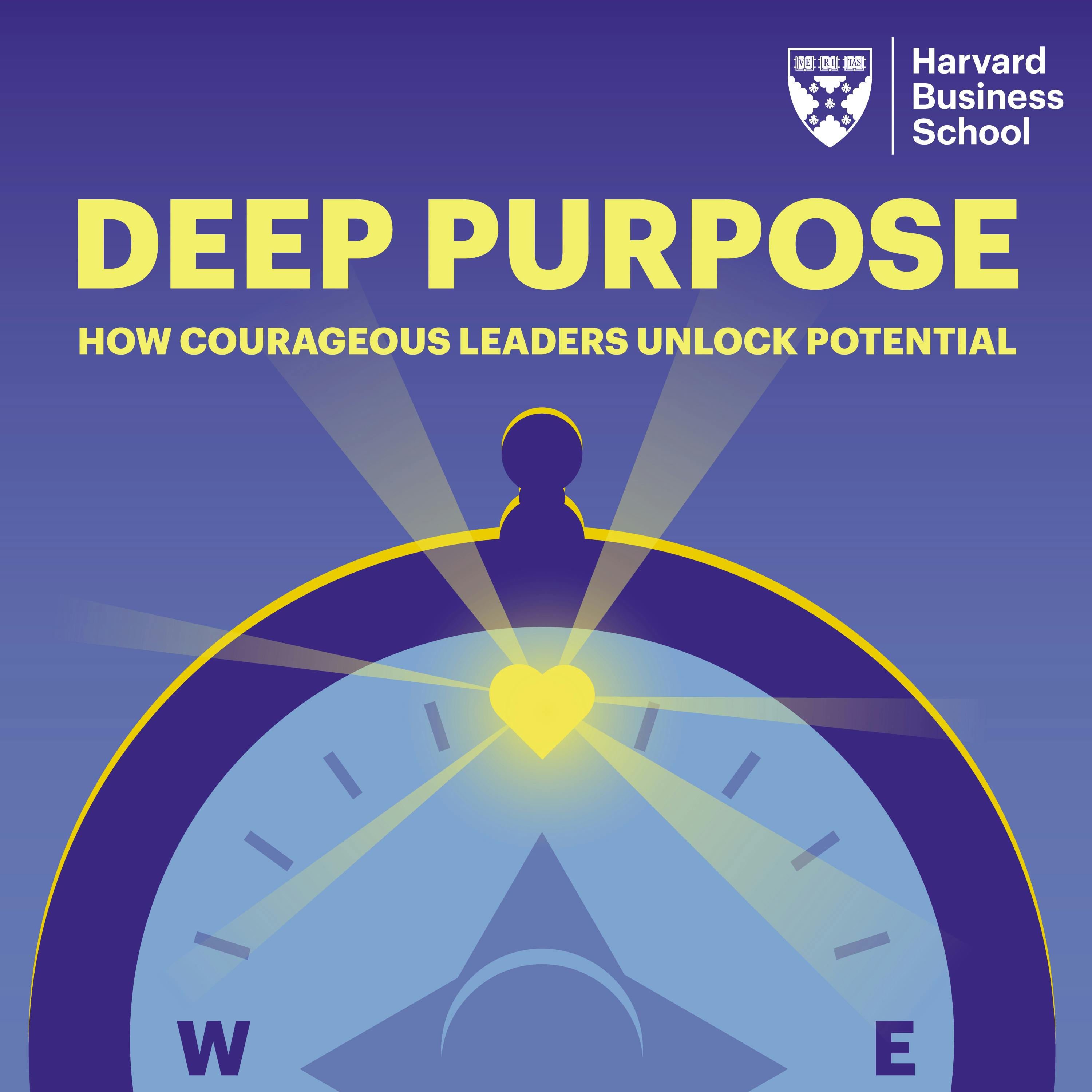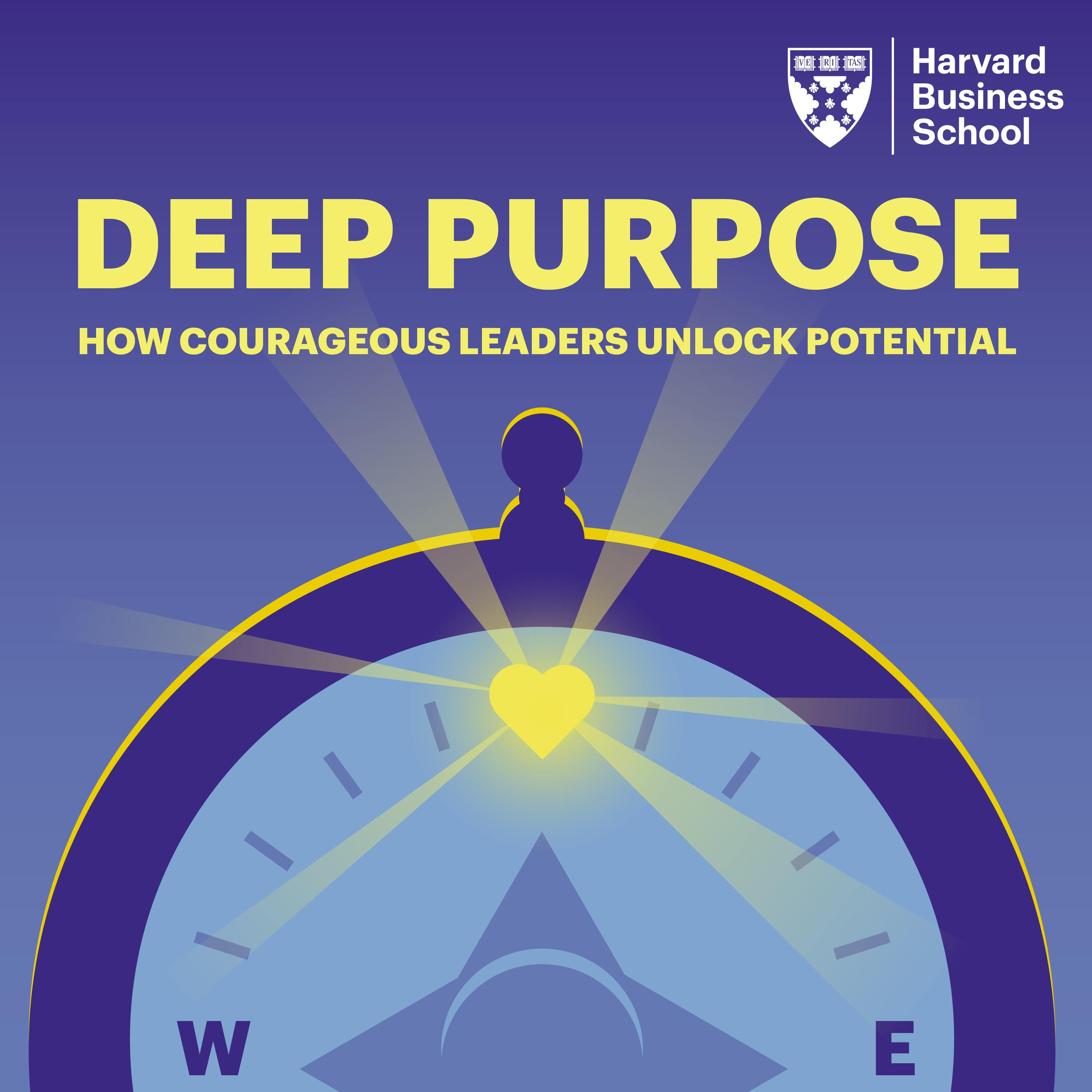Discover Deep Purpose
Deep Purpose

Deep Purpose
Author: Harvard Business School Prof. Ranjay Gulati
Subscribed: 23,607Played: 60,081Subscribe
Share
Description
Deep Purpose is a series of captivating conversations with Harvard Business School Professor Ranjay Gulati and top global CEOs about how courageous leaders unlock potential, proving that vast performance gains–and vital social benefits–are the payoffs when firms get purpose right.
28 Episodes
Reverse
Research has repeatedly shown that we are hard-wired to worry. Whether we worry about our own survival, our family and friends, or our future, it can seem like we spend much of our lives fixated on what could go wrong. In this episode, Helena Foulkes discusses how taking courage can be as simple as asking what could go right – a philosophy that has taken her from the helm of CVS Pharmacy and Hudson’s Bay Company to the campaign trail for governorship of Rhode Island.
In our increasingly virtual world, it can feel like many of our lives take place remotely. When Josh Silverman took the helm at Etsy in 2017, however, he went against this technological grain, helping to usher in a new, distinctly human-centered purpose at the e-commerce company: “Keep Commerce Human.” In this episode spanning the course of his career, Silverman recounts the difficult choices he has made in keeping people at the center of business – and what following that ethos has meant for his personal and professional life.
Despite the decades of progress women have made in the workplace, they remain
underrepresented in leadership positions at companies across the globe. Leena
Nair, CEO of Chanel, is working to change that. Reflecting on her journey from
rural India to London, Leena discusses how she developed the confidence
necessary to usher Chanel into the future – one led by (many more) women.
Few CEOs can claim that they started in entry-level positions at the
companies they now lead. Penny Pennington is one of those few, rising from
financial advisor to CEO and Managing Partner at Edward Jones. In this episode,
Pennington reflects on how Edward Jones’ purpose – “to partner for positive
impact” – motivated her personal and professional life and, nowadays, how she
has been working to realize that sense of purpose for Edward Jones’ employees,
clients, and the communities in which they live.
As a veteran leader in the healthcare sector, José (Joe) E. Almeida, Chairman, President & CEO of Baxter, has made a lot of tough decisions. He led the successful turnaround of the Illinois-based multinational by calling on leadership lessons he gained from his family in Brazil. Almeida says courage is not the absence of fear, but the determination to press on when times are difficult.
What’s really in a payment? During his career at Mastercard,
Michael Miebach has strived to understand how payment solutions make a
difference in people’s lives, even before his appointment as CEO. In this
episode, Miebach explains how he thinks through powering the economy in an
increasingly digital (if uncertain) world and the leadership required to do so.
During the 2000s, Anne Mulcahy was faced with the seemingly
unsurmountable challenge of saving Xerox, rising to the position of CEO after
her predecessor had been unsuccessful. In this retrospective, Mulcahy discusses
the leadership lessons she learned, the role she believes CEOs should play in
today’s society, and how she’s defining her life post-Xerox.
Harsh Shah and his firm’s co-founders faced a once-in-a-lifetime quandary: should they sell the incredibly successful e-commerce venture they worked so hard to build to a big conglomerate? Reflecting on the circumstances surrounding their acquisition offer, Shah outlines the values that guided their ultimate choice.
James Mwangi made a courageous decision to leave a comfortable, big-city banking job to rescue Equity Building Society, a local financial institution on which Kenyan farmers and villagers depended. Under his leadership, the struggling firm transformed into a multi-national conglomerate (Equity Group Holdings) that now serves millions of customers across six African countries. Mwangi explains how he found the fortitude to fight for the financial futures of everyday people.
To pilot Alaska Airlines, CEO Ben Minicucci draws on his Italian immigrant roots and Canadian military training, which was put to the test during a tricky operation near the North Pole. Having first gained a reputation at the company as “the numbers guy,” Minicucci discusses how he has been evolving into a leader who cares deeply about Alaska Airline’s employees, customers, and the communities it serves.
As the Chief Financial & Growth Officer of the Levi Strauss & Co. clothing brand, Harmit Singh makes tough decisions by sticking to a clear set of values that are well-aligned with the company’s larger purpose. He is inspired, in part, by Levi Strauss himself, who started selling his now-iconic jeans during the California Gold Rush and committed some of his first profits to a local orphanage. With this inspiration in mind, Singh reflects on how taking risks throughout his career has made him a more courageous, future-oriented leader.
The global food supply chain is a significant source of greenhouse gas emissions and other environmental challenges. Many companies avoid these issues or make token efforts to reduce their impact on the planet. But as CEO of the Swiss-based technology giant Bühler Group, Stefan Scheiber is mapping a courageous plan to combat food waste and climate change. He describes how he challenges his own company, its customers, and himself to face sustainability problems head-on.
Great business leaders are problem solvers. That’s what sparked Susan Tynan (Harvard Business School MBA 2003) to found Framebridge, a custom framing company. When Tynan couldn’t find a reasonably priced place to frame her beloved posters, she launched a business, which took off after years of hard work – and hard decisions. Tynan reflects on her learning journey, discussing how she managed the risks of entrepreneurship while aiming to make a lasting impact.
John Chen was hired to save an iconic smartphone company that ran out of juice. BlackBerry had gone from being a corporate world must-have to a global has-been. Chen says the key to turning Blackberry around was being prepared to make hard calls, even in midst of uncertainty. He says that, in business, the journey can be more important than the destination.
Paul Polman is the legendary former CEO of Unilever and a global leader in combating climate change and promoting corporate responsibility. Reflecting on his career during and after Unilever, Polman explains how a company can achieve robust financial performance while playing an active role in solving the most pressing challenges facing society today.
Harvard Business School Professor Ranjay Gulati is back with a new season of Deep Purpose. This time he’s exploring the qualities it takes to become a courageous leader, joined by a new lineup of top global executives. He’ll sit down to discuss each guest’s personal story and how it led them to make bold business decisions. The show shares key insights that illustrate why courageous leadership isn’t born from the absence of fear, but rather taking action in the face of fear.
In this bonus Deep Purpose release, we are sharing an episode of the HBS podcast Climate Rising with host Professor Mike Toffel. In this episode, Daniel Pacthod, Senior Partner and global co-leader of McKinsey Sustainability, shares how the company works with its clients to address climate risk and find opportunities through its pillars of net-zero strategy, green business building, decarbonization transformation, net-zero financial institutions, and sustainable investing. He also offers advice for those interested in careers in business and climate change.
The core purpose of The Mahindra Group is to help people “rise.” Company leader Anand Mahindra says the “rise” philosophy guides how this sprawling enterprise makes money, motivates employees, and strives for a better world. Mahindra describes how “rise” is a beacon for the group’s 250,000 employees and makes life better for people across the globe.
Like many winning businesses, DBS (formerly known as The Development Bank of Singapore) is obsessed with the customer experience. CEO Piyush Gupta says DBS’ mission to be the best bank in the world pays huge dividends for employees, investors, and communities. He tells Professor Gulati that effective leadership in the digital age requires collaboration and trust. Gupta says performance and purpose go hand in hand, helping build companies that will last.
David Vélez is a founder of the world’s biggest digital bank: Nubank in Brazil. Vélez tells Professor Ranjay Gulati that he started his remarkable business career as a boy – and with an unusual investment. Vélez describes how having a deep purpose helped his team defy the critics and build Nubank from scratch. Nubank’s core mission led it to outperform the competition. And deep purpose is prompting Vélez, a multi-billionaire, to give away his wealth in his lifetime.



